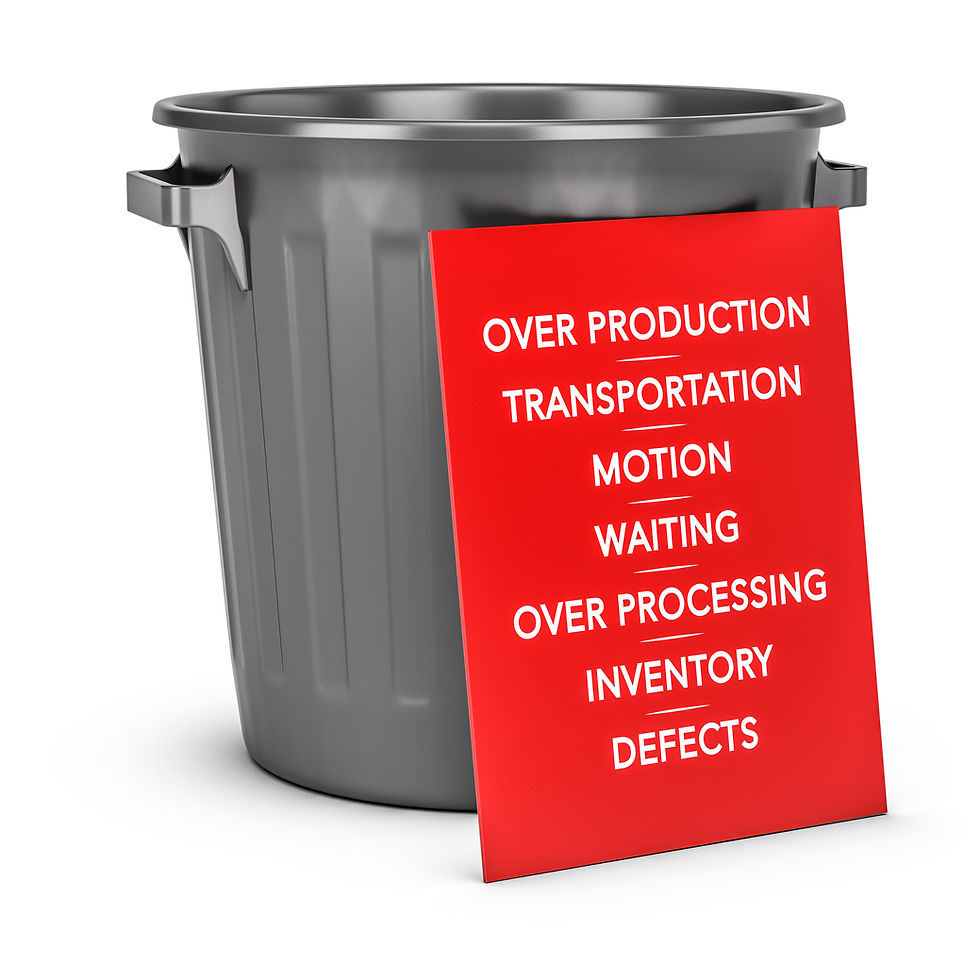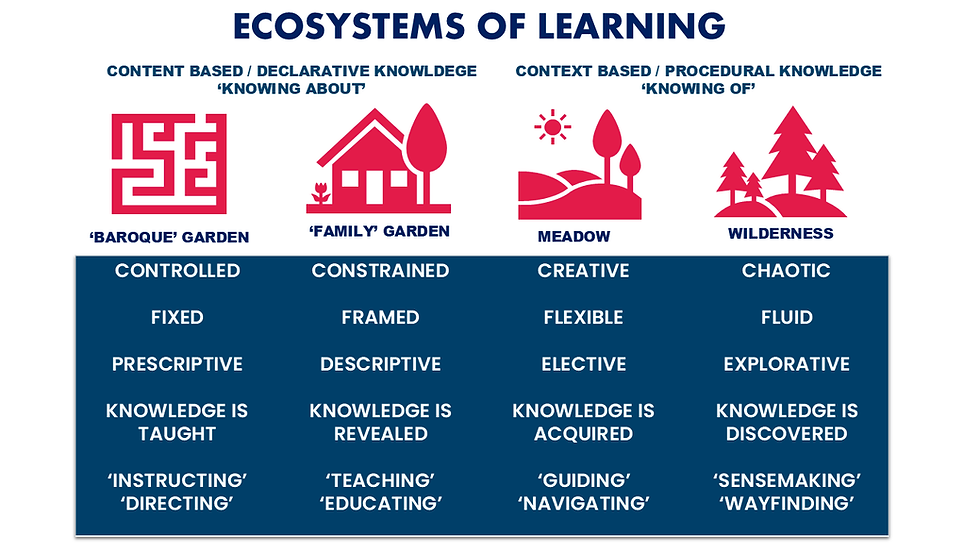What is your learning and development ‘Prosecco moment’?
- Stuart Armstrong

- Mar 31
- 6 min read
Updated: 1 day ago

I travelled down to London a few weeks ago to do some professional development with Nick Shackleton-Jones.
For those who don't know, Nick is a learning and development specialist who has worked in a whole array of different fields. Initially a psychology lecturer, he's worked for major firms including Deloitte (as chief learning officer) and BP, among others. He now runs his own consultancy, Shackleton Consulting.
His book, "How People Learn," presents a powerful alternative position on learning and how it needs to radically change. Many of his positions align very closely with mine. We share very similar views on how we need to transform learning to enable human beings to thrive in whatever roles they have.
One of the key concepts Nick discusses is the "Affective Context Model." The summary of this model is remarkably similar to the underlying thesis of ecological dynamics: the context in which you're in provides a crucial aspect of why somebody would be motivated to learn. In simpler terms, the problem you're trying to solve and the situation you're in defines what you learn.
Instead of learning something abstract that might benefit you in the future—what we might call "just in case" learning—you engage in "just in time" learning. You learn as you go, focusing on things that are genuinely meaningful and matter to you.
Yesterday we explored the "5Di framework" - This framework outlines the approach you would take to develop a learning framework for an organisation, whether you're a consultant or an internal L&D business partner helping with design.
The fascinating day began with a glass of prosecco. Why? It wasn't just for enjoyment (though that was a nice bonus). Nick explained it through the peak-end hypothesis, which describes how people remember experiences. If you go on holiday, for example, you tend to remember the peak moments—the most memorable moments—and the end.
So we began with a toast towards improving learning for everybody. Rather than sitting down and watching PowerPoint slides, we stood for about an hour, talking to each other. Nick had done preparatory work, asking us about the things we were interested in and keen to know more about. He put these topics on the board and asked, "Which are the most interesting to you?" We discussed those topics.
From the start, he made the experience relevant, meaningful, and focused on the things that mattered to us. We were immediately engaged, standing in a room with prosecco, toasting and discussing what we wanted to talk about.
The key takeaway for me wasn't necessarily the content of what we discussed, but the fact that Nick had taken the time in designing a learning experience to create a hook—a memorable moment that would ensure whatever we talked about would stay with us.
We discussed how so many learning experiences are designed to deliver content to people and how most of this ‘information transfer’ is actually forgotten as quickly as it is transmitted. Nick spoke of researchers like Hermman Ebbinghaus and Eric Mazur, who have demonstrated that the vast majority of learning experiences are actually quite meaningless.
Mazur, a Harvard physicist, apparently concluded that traditional lecturing was actually unethical. He determined that as a learning modality, lecturing was doing students no good whatsoever and might even be harming their future learning prospects. It was neither enjoyable nor beneficial.
This finding resonates with research by Donald Clark, who notes that "lectures as a teaching method have never been subject to proper evaluation... they persist through historical inertia" (Clark, 2010).
I found this discussion fascinating because it has parallels to the sports world. I've been advocating for quite some time—lobbying, if you like—for a change in how we provide sports experiences for young people. I've been passionately campaigning for "ditching the drills."
My reasoning isn't just that coaches need to do things differently because it's "better" or because it develops more skills. Rather, I believe that meaningful experiences enrich people's lives and bring them joy. They have value that makes people want to pursue a life filled with physical activity—which brings numerous benefits socially, emotionally, mentally, and physically.
To deliver physical activity in a way that isn't meaningful or appealing seems ethically or morally questionable.
If there is evidence, however incomplete, suggesting that providing sports experiences in a meaningful, memorable, and enjoyable way would give people a sense of purpose and value, and we knew it would at the very least do no harm in terms of development—then we would opt for that, wouldn't we? Why continue using models that don't provide that framework?
This aligns with research by Joan Duda, who found that "creating a climate that emphasises personal progress and effort rather than comparison with others leads to greater enjoyment, sustained participation, and ultimately better performance".
One of the big points Jones made about learning was how many organisations and leaders think they know what learning and development is, largely because their own experiences were of teaching in a classroom. They have an unconscious view that learning involves delivering some kind of course.
The solution to most problems presented by a workforce with training needs—after conducting a training needs analysis—would be to produce content, assuming this content will solve their problems.
Nick challenges this approach, arguing that people don't need content delivered to them. What they need are things that help them do their job—resources or experiences. The reason experiences are important is that when people do things practically, when they live them and feel them, they develop a deeper knowledge that stays with them and is more useful to them.
This approach helps people develop skill as opposed to just knowledge. We know that knowledge without context—or learning something out of context—needs to be relearnt in context. That's why the vast majority of learning and development interventions fail; they don't transfer to the real world. They're not momentary, not in the moment, not related to the challenge the person faces, and therefore don't have meaning. More often than not, they're forced—"You've got to do this. It's compliance. It's mandatory."
As David Perkins notes in his work on "learning that matters," there's a fundamental problem with learning that doesn't connect to real-world challenges: "A chief enemy of transfer and application is inert knowledge—knowledge that sits in the mind but isn't activated in situations where it would be useful" (Perkins, 2009).
The 5Di framework stands for Define, Discover, Design, Develop, Deploy, and Iterate. The framework begins by considering the recipient—who the learner is and in some cases, who they're going to engage with. Then you work backwards through a discovery process to understand their needs and real-world challenges. Finally, you design experiences and resources that will meet those particular challenges.
The Challenge of Coach Development
It's not surprising that when I talk to clients and ask them to assess how many of their coach development workforce they consider to be really good or exceptional, the number is often very small. The vast majority are in the middle, considered okay, and there's a decent number considered below standard.
This shouldn't surprise us because these people aren't given much support to develop. The idea of putting together frameworks is to create experiences and moments that people will find attractive, meaningful, and useful in their day-to-day work.
Part of the challenge is understanding what their day-to-day challenges are and what issues they face. Many clients don't have enough information about what these people are experiencing and need—their discovery phase is lacking. Going through that process might be challenging, but it's extremely valuable because anything difficult typically is. It provides real clarity about who you're serving and what you're trying to support them with.
‘Re-hiring’ - continuous onboarding
One idea that emerged from the sessions was having an annual or bi-annual experience where the workforce is brought together in what was called a "re-hiring." This is essentially re-engaging, reconnecting, and re-onboarding employees.
The idea is that onboarding isn't just something that happens at the start—it's continuous.
New priorities emerge, business plans change, and new opportunities are created. You need to rebuild your organisation and reconnect your workforce with the new direction.
The Future: Handmade Pottery
We discussed the future and the role AI would play in learning and development. There was a lot of concern in the room that L&D was rapidly becoming obsolete and could be replaced by AI ‘bots’.
As anantidote to the concern, Nick used a wonderful phrase: we're moving towards "handmade pottery." If you're in the learning and development space just churning out content and believe passive content delivery with no relationship to context is the future, that's not going to last much longer. People will look for cheaper alternatives.
But if you're providing meaningful, contextualised, emotion-rich experiences for people, the future is very bright.
AI can augment and support. It's there for immediate, on-demand performance needs ("How do I submit my expenses? Etc)
But humans will also need and want deeper, richer human connection and engagement, those things will only be enhanced by people creating experiences for each other—either digitally because of distance or ideally in a physical space where we come together.
This "handmade pottery" idea suggests we need to become extremely skilled at providing experiential learning models because that's what humans will seek out.
What Is Your Prosecco Moment?
It was a fascinating day with many takeaways that I'll be bringing to my clients over the coming months and years. The main question I'll be asking myself is: "What is your prosecco moment?" How will I design prosecco moments into learning experiences?
By the way, if you want to join my learning community, ‘The Guild’, we come together once a month via Zoom (since people are from all over the world). You can join through the website.




Comments